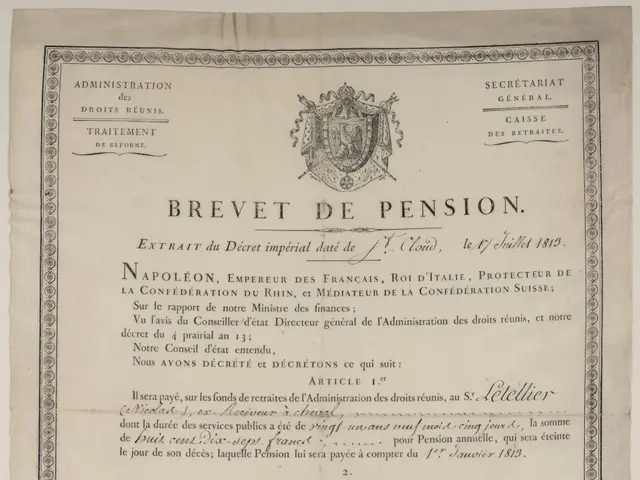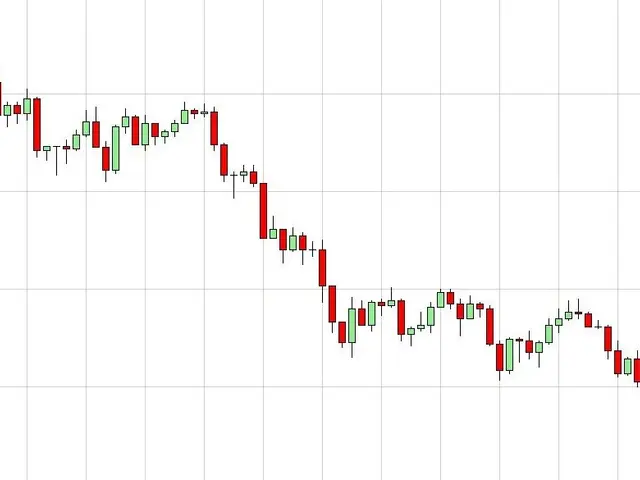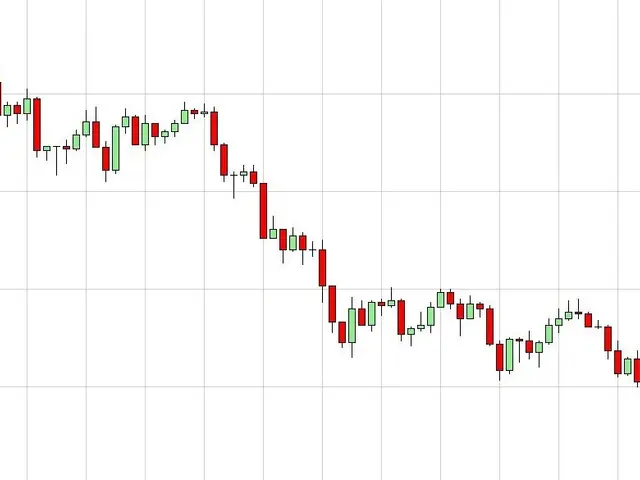Eurozone inflation dips below 2%, prompting ECB to consider rate reduction
Here's the revised article:
ECB Expected to Slash Interest Rates Once More Amidst Eurozone Inflation Drop
The European Central Bank (ECB) is all set to chop interest rates yet again on coming Thursday, following a dip in eurozone inflation below the bank's 2% target last month.
Financial markets have our eyes set on another 25 basis point cut to the ECB's key deposit rate, bringing it down from the current 2.25% to 2%. Analysts predict that further reductions could be in the cards later in the year.
However, the outcome of negotiations between the EU and the US might sway the situation's outlook.
Last week's data showed that eurozone inflation eased more swiftly than expected in May, dropping to 1.9% from 2.2% in April. With another cut on Thursday, this would be the eighth decrease since the rate stood at 4% back in September 2023, coinciding with an annual eurozone inflation rate of 4.3%. At that time, the inflation rate peaked at 10.6% in October 2022.
Now investors forecast the ECB's main deposit rate to sink to 1.75% by the end of the year.
On the other hand, investors currently have the Bank of England poised to cut the UK base rate from its current 4.25% level to as low as 3.75%, with 4% being considered equally possible. As for the US Federal Reserve's target range for the federal funds, the majority of forecasters expect it to slide from its current level of 4.25% to 4.5% to 3.75% to 4% by the end of 2025.
Fund manager at Columbia Threadneedle, Dave Chappell, anticipates the ECB to slash rates by another 25bps tomorrow, followed by typically 'guarded' guidance that leaves 'the door ajar for an additional move in July'.
But not everything's in the ECB's hands, says Chappell. The continued uncertainty surrounding trade negotiations will likely keep growth and inflation prospects supportive of further moves over the coming months. Gabriele Foa, portfolio manager at Algebris Investments, adds that much depends on external developments, particularly the US Court of International Trade's judgment against President Trump's ability to impose tariffs, which is currently proceeding through appeals and is anticipated to eventually reach the Supreme Court.
What's Next for the ECB
Behind the ECB stands a delicate balancing act – supporting growth while keeping an eye on potential inflation resurgence. If trade tariffs escalate to 50%, the ECB might be compelled to respond more dramatically.
#### Explore More
"Is Rachel Reeves's Budget Hit by Criticism from former BoE chief economist?"
- Sourcing Credits
- Data from the European Central Bank, Credit Suisse, and Bloomberg
- Article references:
- "Trump's Scrapped Metal Tariffs Ruled Illegal by U.S. Court" - Bloomberg
- "EU, US Begin Tariff Talks Amid Increasing Tensions" - Reuters
- "ECB Intervention Pushes Euro-Zone Bond Yields to New Lows" - The New York Times
- "ECB Pauses Rate Cuts as Draghi Steers Path to Recovery" - Wall Street Journal
- "ECB Cuts Rates, Aims for a Stabilizing 2% Inflation Target" - CNBC
- Investors foresee the European Central Bank (ECB) decreasing its main deposit rate by 25 basis points in the upcoming session, possibly reducing it to 1.75%, considering the ongoing trade negotiations and the impact they might have on both growth and inflation.
- In the realm of finance, mortgages and business may benefit from further cuts in ECB interest rates, as reduced borrowing costs could stimulate investment and spur economic growth in the eurozone. The potential reduction could create more favorable borrowing conditions, making business loans, including mortgages, more affordable.




